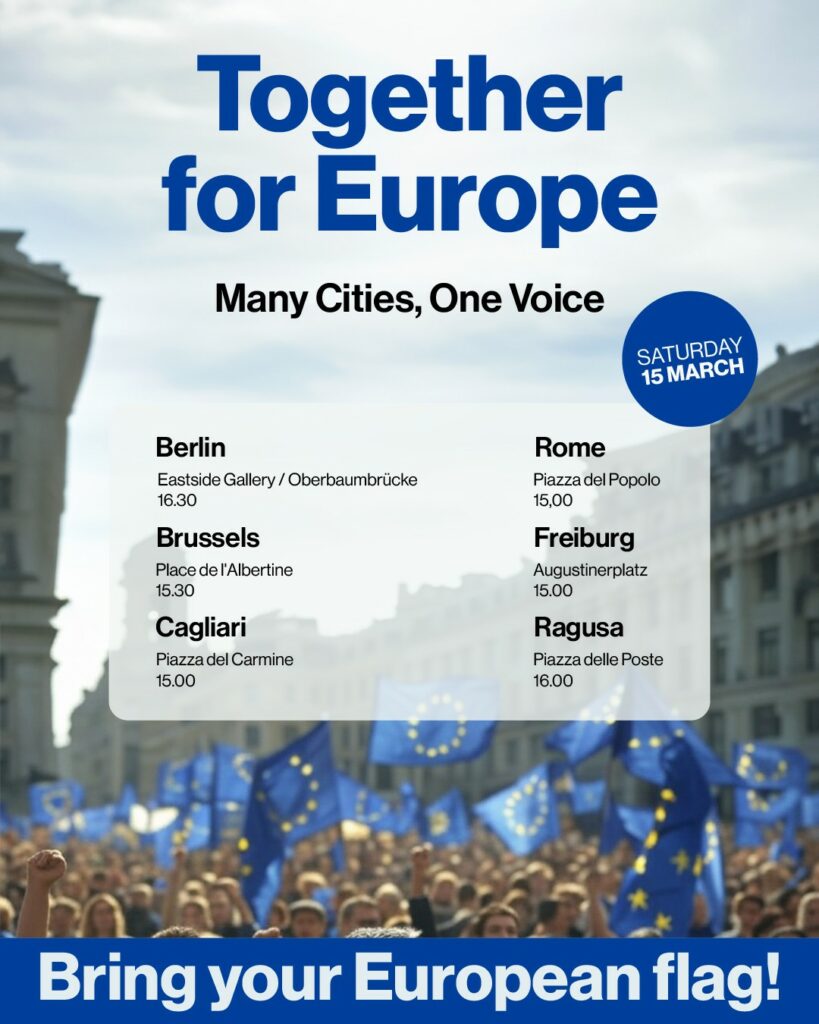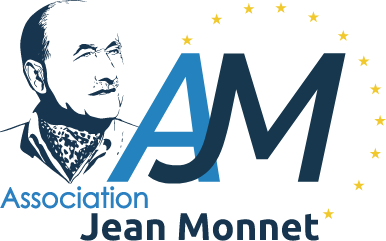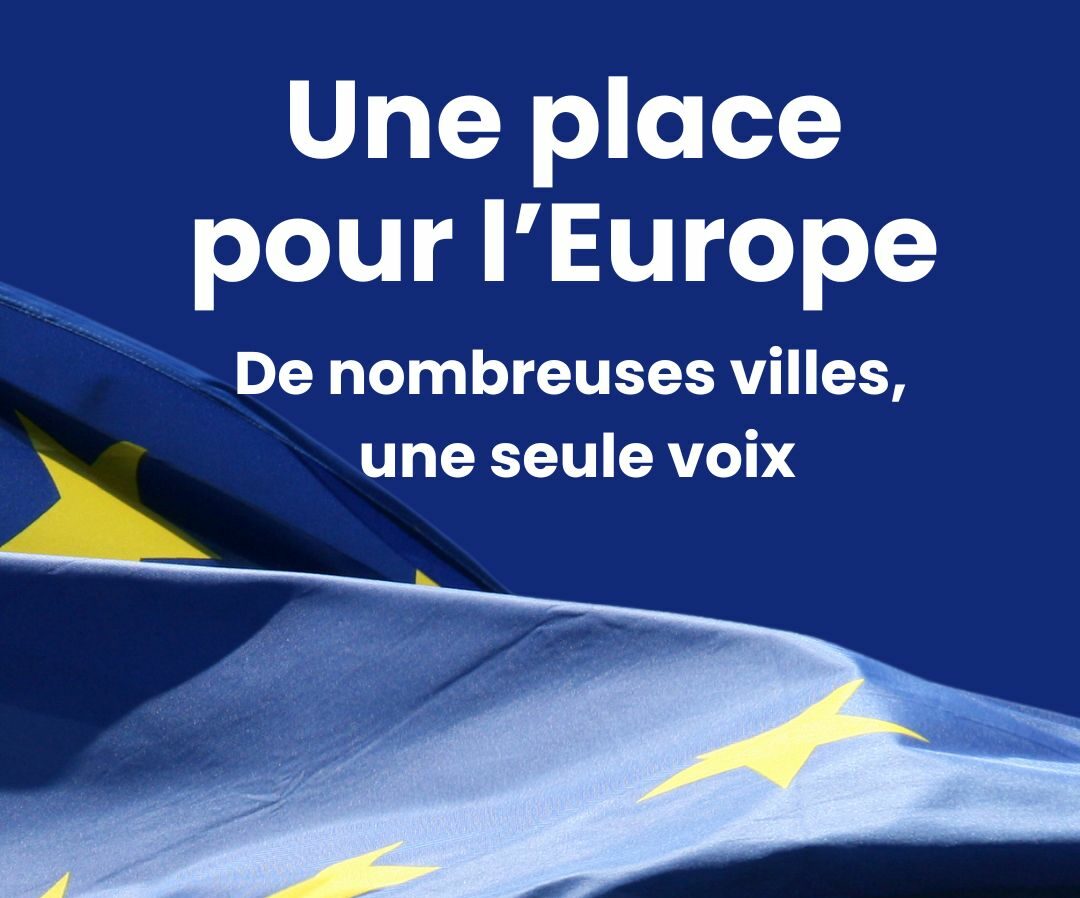On 27 February 2025, writer and journalist Michele Serra published the article " Una piazza per l'Europa "in the newspaper La Repubblica. This article, supported by numerous federalist movements and European personalities, launched the idea of aa march for Europe on 15 March 2025.
This text is a translation
The world is changing at an unforeseen pace, history is galloping forward and does not grant respite even to the most inattentive and the laziest among us. Disorientation, and even fear, are widespread feelings; each of us can sense that in our daily conversations. You don’t need a political scientist or a philosopher: just a friend at the bar is enough to know that people look at the present with bewilderment and at the future with apprehension. Does the political and strategic concept of "the West," in which the last generations of "Westerners" have grown up, still exist? What will become of Europe, which today seems like the earthenware pot between two iron pots, both filled with nuclear bombs? Will the European way of life survive this pressure, which challenges what we simply call democracy, meaning the separation of powers, equal rights and duties for all, religious freedom and state secularism, equal dignity, and equal peace of mind for both those in government and those in opposition?
And if autocracies speak simply and clearly (and lie as they please, thanks to their constant technological counterfeiting of reality), what language should Europe adopt so that its voice is not only heard but also strong, convincing, and as appealing as that of its enemies?
I happened to respond to these questions in the most instinctive way. Perhaps, also in the most "sentimental" way — but emotions exist, and living without them makes life worse. In a column a few days ago, with the title "Say Something European", and in my newsletter on Il Post, I wondered why don't we organise a great demonstration of citizens for Europe, for its unity and freedom. With no party flags, only European flags. Something that conveys, with the sometimes ruthless synthesis of slogans: "Here and now, we build Europe, or we die". Ideally, it would happen on the same day at the same time in all European capitals. In a more domestic and feasible version, in Rome and/or Milan, hoping for a continental ripple effect.
In both cases, the number of emails and messages I received saying "I'm in, I’ll be there, just tell me where and when" was simply overwhelming. I had never experienced anything like it in decades of public writing. It was as if I had looked out from the two little windows I have to see if there was anyone in the street to chat with, and I had found a square already full. Not summoned, not organized, although with a determination to be there that is not even a desire, but rather a necessity. And even though my media audience is quite limited — as I am well aware — it made me think that perhaps it is worth insisting. Worth trying. Also because omissions, at such a serious and tumultuous stage of history, are unforgivable.
I have no idea how to organize a demonstration. It’s not my job. Unlike the "Sardine" movement, I don’t even have the social media skills needed to make the call for an event spread quickly and pervasively. I don’t even know exactly what a physical demonstration means in this new era: whether it’s an archaic and clumsy ritual compared to the lightning-fast spread of algorithmic gatherings; whether it’s a generous impulse but destined to dissolve amid the obvious political difficulties (uniting Europe, but how? and when? and by overcoming which of the hundred obstacles first, without tripping over the second one?).

Yet I do think that a demonstration with only European flags, with the sole goal (doesn't matter how ambitious — what matters is the vision, the value) of defending the freedom and unity of the European peoples, would have a profound and reassuring meaning for those who take part in it. It would make them feel less alone and less powerless in the face of events. And it would be a significant sign — perhaps even an important one — for those who handle political agendas, and who could not ignore the presence of a grassroots European identity, a political project that is both innovative and revolutionary, one that does not look to the past but speaks of the future. Speaks of our children and grandchildren.
Therefore, I turn to anyone who knows how to make this happen, whether they are the most ordinary of voters or the most prominent of members of Parliament, the most well-known public figures or the most anonymous of citizens. Associations, unions, parties — provided they are willing to disappear, one by one, into the monochrome blue of the Europeanist square.
I have thrown my small stone into the pond, let's hope that stones start raining down.






